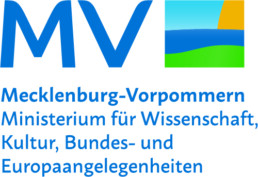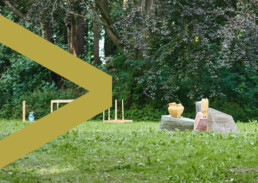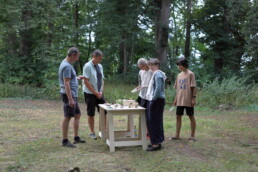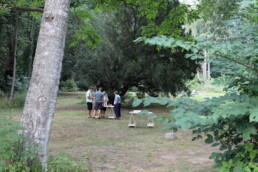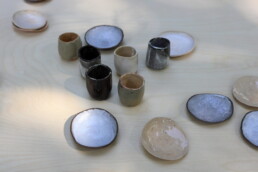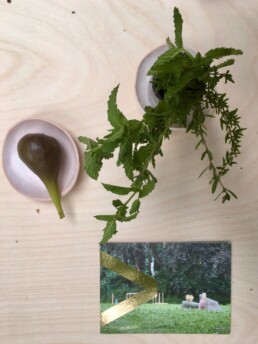PLAY MUSEUM SCHMUCKBAR
23
2022
»Kunst ist ein freies Spiel, das Mitspielen verlangt. Jedes Werk ist für jeden, der es aufnimmt, ein Spielraum, den er ausfüllen kann.« (Hans-Georg Gadamer, Die Aktualität des Schönen: Kunst als Spiel, Symbol und Fest.)
© Copyright SCHMUCK2 + Thomas Häntzschel/nordlicht
On the occasion of its 25th anniversary in summer 2022, SCHMUCK2 has added to the PLAY MUSEUM project what belongs to every museum: the active encounter with the guest.
In spontaneous and conceived exchanges, SCHMUCK2 continued the vision of the »(jewellery) museum« and invited guests to the PLAY MUSEUM SCHMUCKBAR to experience the most elemental part of our lives – our food – in its representative and decorative quality. Directly connected to the body, our food serves us in an increasingly digitalized world, as one of the last important material basis of life. At the same time, with every bite, we promote the strengthening of our self-esteem, cultivate self-respect and self-care, qualities that are necessary to sustain life.
© Copyright Shintaro Imai
Artistically, the PLAY MUSEUM SCHMUCKBAR formed from the landscape, vegetation and what grows from it, their colors, shapes and flavors. Edible, pictorial sculptures were created, which changed in the process of presentation and emerged as projection objects for the beautiful, the nourishing, the adorning.
According to British curator and author Jasper Sharp, museums are places of collective experience that help connect us to one another. Ideally, they open up spaces for encounters and places for dialogues across borders.
The deliberate, mindful process in which the PLAY MUSEUM SCHMUCKBAR unfolded, was a quality that made it possible to enter into conversation with each individual visitor, to engage them in a reflective discourse.
© Copyright Shintaro Imai & Caroline Bayer
PLAY MUSEUM SCHMUCKBAR a performative intervention by Caroline Bayer and Susan Pietzsch on the occasion of 25 years of SCHMUCK2 in the park of the old Glashagen estate.
The project PLAY MUSEUM SCHMUCKBAR was funded by the Ministry of Science, Culture, Federal and European Affairs of Mecklenburg-Vorpommern and supported by the municipality of Retschow.
